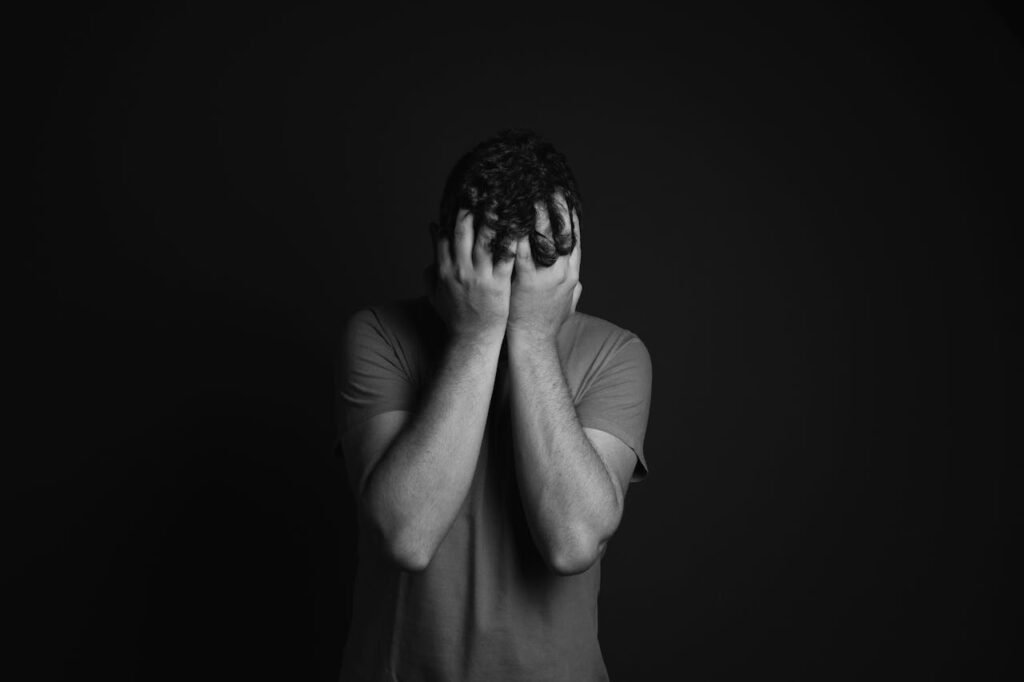Life has a funny way of leading you to unexpected truths. For me, that journey involved unravelling a lifetime of feeling “different,”. A path that eventually led me to suspect I might be autistic. It wasn’t a sudden lightning bolt, but rather a slow piecing together of experiences, of “aha!” moments that painted a clearer picture- Unmasking My Truth. If you’re reading this, perhaps parts of my story will resonate with your own.
The Unseen Struggle and the Dawn of Realization
There was a period in my life, after a whirlwind of huge changes – adopting our first child, a career shift, and then the sudden, unexpected arrival of our son’s biological sibling – when I found myself deeply struggling with my emotions. I didn’t realize then how crucial steadiness and routine were to my well-being. Daily life, with its barrage of new demands, felt incredibly difficult to manage. I was quick to lose my temper, and once I did, I struggled to rein myself back in. In hindsight, I see now I was hitting autistic burnout.
Before I ever encountered terms like “high-masking autism,” I just knew I found certain aspects of social relationships hard to manage. I thought it was “just me.” I’ve always been a very sensitive person, and sometimes that felt unusual- like I was an outlier. Looking back, it often felt like I was acting – constantly smiling, aiming to be cheerful, calm, and steady on the outside, even when my internal world was in turmoil. I carried this persistent feeling that I needed to please others. It was during my own child’s assessment process for autism, as I filled out paperwork for his referral, that the first real spark ignited: “Could this also be about me?”
A particularly poignant memory surfaced when I was talking to my mum during my assessment process. She recalled that when I was little, before we’d go out, she’d say, “Okay, time to put on our outside faces.” This makes me wonder, with no negativity intended, if she might also be autistic and was, in her own way, teaching me how to mask from a young age.
That realization, coupled with a lifetime of subtle (and not-so-subtle) cues, led me to identify five key areas that made me strongly suspect I was autistic.
My 5 Key Signs: Piecing Together the Autistic Puzzle
1. Constant Emotional Overwhelm & The Cycle of Burnout
The feeling of being “quick to lose my temper” was a significant sign. Typically, having lots of demands placed upon me would be the trigger, especially when I no longer felt in control of a situation. If this was coupled with lots of layers of sound, it could easily push me over the edge. I’d become overwhelmed and shouty. It wasn’t a slow build; it would come on fast, like an explosion, and then it just needed to burn itself out.
When I realized I was hitting burnout, it wasn’t just stress. It was characterized by deeply depressed feelings and a crushing self-loathing, even wondering if the world would be better off without me. I understand now that the constant effort of masking all day, every day, was utterly exhausting. The energy demands were just too much, leading inevitably to emotional volatility and burnout.

2. Drowning in a Sea of Sounds – Sensory Overload in Daily Life
Sounds have always been incredibly difficult for me. My eldest child, bless him, talks constantly – a never-ending stream of chattering and narration. Add to that a crying toddler, my husband trying to talk to me, and perhaps the television on in the background, and I would simply break under the pressure. It wasn’t just loud noises; it was the layers of sound.
I often struggle to discriminate sounds. Trying to follow a conversation in a noisy environment feels like the words just don’t quite go in. It even led to a referral to an audiologist, where it was suggested I might have auditory processing disorder. I’ve realized I use lipreading to a certain extent to help me cope. Specific types of sounds, like whistling, popping, clicking, and even certain eating sounds people make, can be especially difficult to tolerate. Noise-canceling headphones and Loop earplugs became my shields long before I understood why I needed them so desperately. Now, I am NEVER without my headphones.
3. The Social Maze – Why Connecting Felt So Hard
Social situations have always been a minefield. The more people involved, the harder it became. I find it incredibly difficult to express myself in larger groups; I shy back in a way I don’t with a smaller group of people I know well. Small talk? The “rules” just escape me, and it feels forced and inauthentic, which I dislike.
When it came to friendships, I often felt like I wasn’t worthy – like I didn’t have anything valuable to offer. I’d see people doing things with their friends, and I didn’t do that. I wonder now if that was me not making myself available, and certainly not initiating. I would have loved those connections, but I found navigating what other people might think of me incredibly hard. Consequently, friendships, for the most part, have faded away. It’s almost like when people are out of sight, they are out of mind for me. And yes, I almost always felt like I was “performing” in social situations, to a greater or lesser extent. It was tiring and, again, felt deeply inauthentic.

4. The Never-Ending Loop – Rumination, Anxiety, and a Baseline of Distress
My mind tends to ruminate on anything and everything: work, family, and especially what people were thinking of me. I would spend so much time going over things I’d said or things that had happened; wondering how I could have been better. I’d worry about things that were going to happen or might happen, mentally cycling through all the potential scenarios so I could feel prepared.
Rumination would whip me into a frenzy, and once exhausted from the mental gymnastics, I’d often slip into sadness. This worrying; the nervousness; the fear of what others thought of me – felt like my “normal.” As my life has become busier with children and more responsibilities, the capacity to pre-think every possible outcome just isn’t there anymore, which can be even more dysregulating.
5. The Unveiling – Realizing My “Normal” Wasn’t Okay (And Wasn’t Everyone Else’s)
This was perhaps the most crucial realization. I started to observe others seemingly moving through their lives with more ease. I felt like a spectator, struggling to understand how they managed it. The tendency I had to become overwhelmed, and the sheer intensity of those feelings, didn’t feel like what I imagined others were experiencing. The daily effort to simply live just seemed so incredibly hard.
The shift from thinking “this is just how I am; this is my normal” to “this isn’t okay, and maybe there’s a reason for it” was monumental. It was scary and confusing, yes, but it was also freeing. It was the beginning of understanding that I wasn’t broken, just wired differently.
Seeing Through the Mask: Why It Took So Long to Suspect
Looking back, I think I was able to appear steady, happy, relaxed. This was my mask, and it was effective at hiding my true needs – like my deep-seated requirement for consistency and routine. The emotional impact of this prolonged masking was significant: chronic anxiety, periods of depression, and a constant need for external validation.
If This Sounds Familiar: Navigating Your Path of Discovery
Does my story resonate with you? Please know you’re not alone. If you’re starting to explore the possibility of being autistic, my biggest piece of advice is to be open-minded and not be afraid to explore who you truly are.
Remember online screening tools are not diagnostic. Reflect on whether the traits they ask about have always been part of who you are. For me, they were, to a greater or lesser extent, present throughout my life. It can also be helpful to talk to people who have known you from a young age and gather their thoughts and memories.
Finding community and hearing from other autistic adults can be incredibly valuable. There’s a profound connection and kinship in shared experiences that can be deeply validating.
Conclusion: The Journey to Self-Understanding is a Strength
Starting to understand my experiences through the lens of autism has begun to change my self-perception. I’m learning to see myself through kinder eyes. I’m beginning to value some of my differences. For me, “living more authentically” in the context of my autistic identity means embracing who I am, quirks and all.
My hope in sharing this is to offer encouragement. Encouragement to explore who you are, to seek understanding, and ultimately, to accept and embrace yourself fully. Your journey is valid, and understanding yourself is a true strength.

Leave a Reply